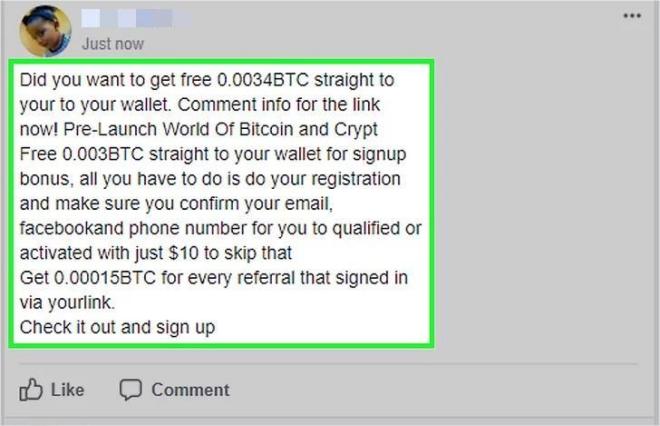How to avoid Social Media Scams?
Your social media posts are a treasure trove of valuable information. Your public contact list alone can help criminals: The list of names associated with your public social media accounts is enough for a scammer to pose as family or friends and send spear phishing emails. In the email, the scammer will try to convince you to reveal private information, such as login credentials, credit or debit card numbers, or your personal privacy.
You can avoid social media scams by managing your network, protecting your information and being suspicious of the links you see.
Managing Your Network
1. Regulate your privacy settings.
Most social media, such as Facebook, twitter, and Instagram, allow you to control who sees your information, photos and posts. To help stay safe, try to limit the amount of people who can see your information to as few as necessary.
2. Allow only people you know into your social media.
Do not accept friendship or network requests from people you do not recognize. There are many fake accounts on social media that exist mainly to scam other users. You can help protect yourself from these accounts by not letting strangers into your network.
On Facebook, you can report friend requests from people you do not know as spam. This will help ensure that they don't contact you again.
When a stranger tries to add you to their network, check to see if you have any mutual contacts. If not, this is most likely a fake account rather than someone you know but simply don't recognize.
3. Keep your network manageable.
While it can be tempting to try to accumulate as many friends or followers as possible, this can often make it harder to keep yourself away from possible scams. The smaller your network is, the easier it will be for you to make sure that you are only communicating with people you can trust.
Avoiding Dangerous Links
1. Never trust links with sensational headlines.
Even if your network is small, you can still easily encounter scams that try to lure you in using links that have sensational headlines. Some social media scams use these headlines to trick people into clicking on links that will infect their computer or ask for sensitive information.

2. Always check the source of a link.
Before clicking on a link, check to see what website it will take you to. Be cautious of clicking on it if it is a site you've never heard of. You can also search for information about the site in a different tab to see if it's legitimate.
You can always research the information provided in a link before clicking on it by doing an internet search in another tab.
If you see a sensational headline, Google the event to see if any reliable websites have reported on it. If you see a link for an amazing deal, check the retailer's website to make sure it's real before clicking the link.

3. Avoid links that claim they can make you rich.
Many social media scams claim that they can make you rich or get you an extremely high return on an investment. Never click on links that promise riches, as they are almost guaranteed to be scams.
4. Avoid links that promise huge retail discounts.
Another common type of scam claims to offer huge discounts or free coupons to popular retailers like Starbucks. Links that claim to offer such great deals usually infect your computer or try to steal your information. Only trust promotional links from retailers themselves when it comes to sales or deals.
5. Be cautious of links posted in comment sections.
Even if you're on the verified social media page of a business or person, you need to be cautious about links posted in the comment section. Some social media scams use these parts of popular accounts to try to trick a large number of people.
Keeping Your Information Secure
1. Never post personal information that can be used by others.
To help keep yourself safe, never share any information on social media that could be used to steal your identity. Obvious things to avoid sharing are bank account numbers or government identification numbers, such as a U.S. Social Security number.
You may also want to avoid sharing less obviously sensitive information such as your date of birth or your mother's maiden name. Pieces of information like this can be used to answer online security questions or start fraudulent accounts.
2. Avoid social media content that asks you for personal information.
Do not download any apps, take any quizzes or sign up for any coupons that ask for information such as your date of birth, social security number, or home address. Always assume that these kinds of attempts to get your information are scams.
Only give out information online when you have gone to a website that you trust and that you expect to ask you such information, such as your bank's website.
3. Refuse to engage in financial transactions on social media.
Social media scams often ask you to send money to someone electronically. Never send money to anyone you do not know who has reached out to you using social media.
To be safe, even if you receive a message asking for money from a friend's account, you should call your friend to ensure that this is a real request from them and not a scam. Some scams can hijack the accounts of other users.
4. Try not to access social media sites on public computers.
Use your own computer instead of the computers at libraries and other public places. Your login information can be stolen and used to post false things.
5. Keep your password secure.
Do not give your social media passwords to anyone unless you trust them completely. You should also use different passwords for different sites and change your passwords regularly. These practices will help make it harder to hack your social media accounts.
【News】●AI-generated fake image of Pentagon explosion goes viral on Twitter
【Artificial Intelligence】●Advanced tips for using ChatGPT-4
【Open Source Intelligence】●10 core professional competencies for intelligence analysts
銆怤etwork Security銆戔棌9 popular malicious Chrome extensions
【Web Intelligence Monitoring】●Advantages of open source intelligence
銆怰esources銆戔棌The Achilles heel of AI startups: no shortage of money, but a lack of training data
【Dark Web】●5 Awesome Dark Web Links



